The job landscape is constantly evolving. More employers are hiring part-time staff than ever before, and the world of public relations is no exception. As of December 2023, 13.9% of all employees worked part-time, which is the highest statistic indicating part-time work popularity over the past couple of decades. In May 2024, the number climbed to 17.4%. Little Leaf Agency founder and CEO spoke with WorkLife about this career trend of part-time vs full-time employment that’s gaining traction – here’s what some of the main benefits are and why both job-hunters and employers should take note.
Increased schedule flexibility
Just like working remotely allows for more freedom and autonomy, so does the rise of part-time jobs. Having more flexibility is ideal for working moms or those responsible for eldercare. It’s also ideal for people with unconventional schedules due to lifestyle, disabilities, or other commitments that may exist. It’s also helpful for those who are currently enrolled in school or pursuing another form of personal fulfillment that they wouldn’t have the time for otherwise.
Allowing for side hustles
A major part of freedom is the ability to balance multiple gigs. But whereas surviving solely on freelance jobs has been more difficult than ever before, given the rate of unemployment and the current instability of the job landscape, balancing a more steady part-time job with other side hustles and freelance gigs to make ends meet can allow for more consistency and a less stressful financial situation from which to approach freelance work.
A balanced lifestyle
Working overtime and specific approaches to full-time jobs can lead to burnout. However, the proliferation of part-time jobs means setting better boundaries and creating a more balanced lifestyle and more free time. Less stress means happier employees, better productivity, and better quality of life, which are essential for a functioning team with good chemistry!
Mutually beneficial for employers and workers
Not everyone with years of valuable wisdom and expertise is looking to get locked in by a part-time job, and employers are missing out on a treasure trove of skill sets and talented people by omitting them from the job search pool.
More flexibility means a broader pool of talent to choose from. Working with people who have expertise but not necessarily the time to commit to 40+ hours a week allows employers to work with the best people in their industry without needing to commit to a full-time salary. Additionally, employing this top talent encourages a mentorship relationship for younger or fewer experienced members of the team to learn from the best in the industry while ensuring that clients get the highest level of experienced people working on their projects.

Using tech to communicate
At Little Leaf, we use tools like Slack, Trello, and Monday to keep in contact with each other on a daily basis. Without these tools designed for project management and remote collaboration, we wouldn’t be able to communicate as effectively. Little Leaf’s team works across multiple time zones and locations, and tools like this help us streamline communications, schedule meetings, and ensure various projects are aligned, bridging gaps seamlessly and enabling more support.
Creating a supportive infrastructure
Part-time vs full-time doesn’t mean less support. Just because someone is working fewer hours doesn’t mean they don’t deserve a community to uplift and assist them. This means clear communication channels on the aforementioned technology platforms. We encourage a result-driven culture rather than one that encourages working endless hours without objectives in sight, as well as comprehensive remote work policies (our global agency is entirely remote and it increases our productivity ten-fold)
Navigating part-time benefits
The very definition of a part-time job is evolving. While part-time benefits aren’t always the norm, many of these positions are starting to integrate benefits such as paid time off or healthcare, which can act as a useful incentive more similar to the full-time job framework. Added perks (such as paid holidays) created due to the employer’s discretion can help overcome traditional barriers of part-time positions.
Are the trade-offs worth it?
Many Little Leaf employees are happy with the trade-offs of working part-time vs. full-time, but this is a personal decision that will be based on everyone’s specific social life, career, and financial situation. That said, part-time work has become a popular trend in the world of employment that’s a win-win, making the future of work not only more sustainable but also more inclusive and fulfilling for every professional within their respective industry.






